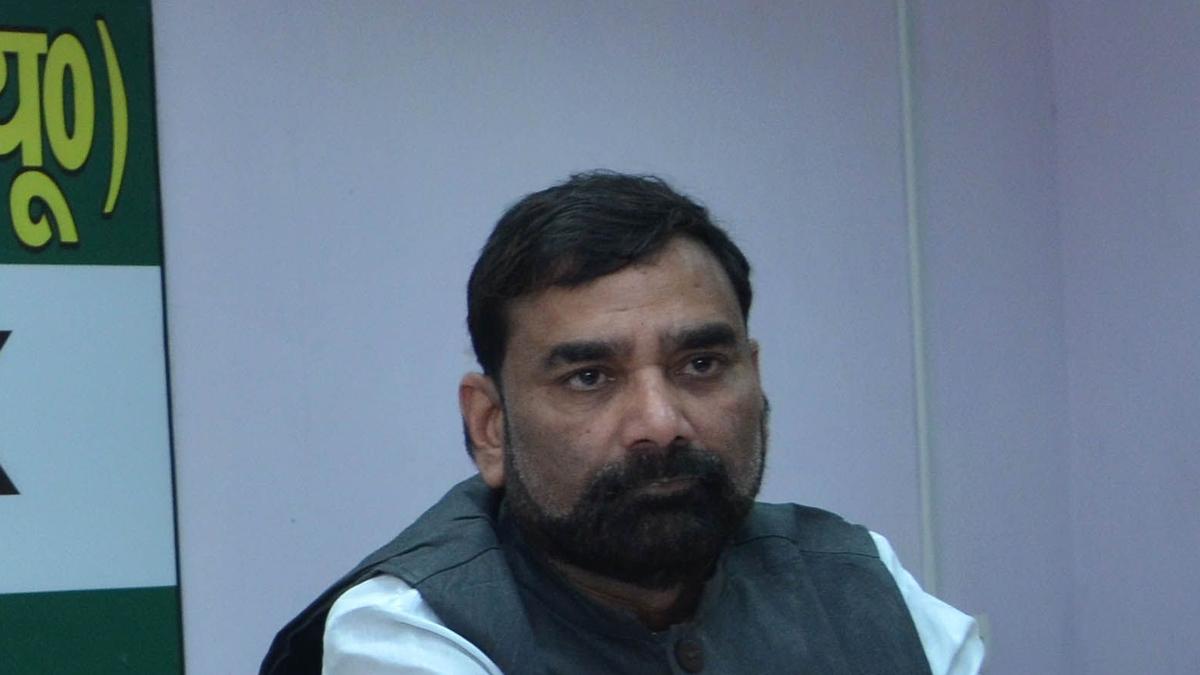UGC Draft Regulations Spark Row: A Clash of Visions for Higher Education?
The recently released UGC draft regulations have ignited a fierce debate, pitting state governments against the central government. At the heart of the controversy lies the proposed increase in the power of chancellors—mostly state governors—in appointing vice-chancellors of state universities. This move, critics argue, threatens to derail state governments' carefully crafted plans for higher education. Get ready, because this isn't just another political squabble; it's a battle that could reshape the future of education in India.
State Governments Push Back Against Centralized Control
Several non-BJP-ruled states have openly challenged the UGC’s draft regulations. They argue that the new rules encroach upon the autonomy and authority of state governments in matters related to higher education. The move, they claim, disrupts the state's meticulously designed roadmap for advancing educational excellence and access. This isn't just about bureaucratic maneuvering; it’s about who holds the reins of higher education – the states that govern their own citizens, or the central government?
The Key Arguments Against the UGC Draft
The core opposition lies in the concern that empowering chancellors with increased influence over vice-chancellor appointments would undermine the state governments' ability to implement their own educational policies. Critics also raise concerns that the chancellor's increased power might lead to potential conflicts of interest. This directly affects academic standards and jeopardizes equitable educational practices.
Case studies: States Leading the Charge
Tamil Nadu's Chief Minister M.K. Stalin was among the first to publicly criticize the draft, stating its conflict with the state's educational system and policies. Kerala also took a definitive stance, unanimously passing a resolution urging the central government to withdraw the regulations. These actions highlight a growing coalition of states fiercely guarding their educational autonomy. These challenges echo the larger concerns about centralized federalism.
The Union Government's Defense and Justifications
The Union government and the BJP have defended the draft regulations, claiming the changes are similar to existing 2010 UGC regulations regarding vice-chancellor appointments. Union Education Minister Dharmendra Pradhan has also maintained there has been no alteration in the selection process or the composition of the selection committee. While their claims seek to calm the stormy waters of dissent, their defense remains firmly at odds with the concerns of the resisting states.
Analyzing the Claims of Continuity
The claim of continuity is not just a matter of semantics. By examining specific articles, appointment processes, and transparency mechanisms in the 2010 and newly drafted guidelines, we can expose any differences and analyze their potential implications on university autonomy. Understanding these differences helps provide context and highlights the true substance of the controversy, as opposed to the superficial arguments presented.
Navigating the Political Landscape
This dispute is not merely about academic regulation. It's profoundly entangled with political considerations. The varying political landscapes of different states, the interplay of state and central power, and the influence of differing ideological stances all play a significant role in shaping responses to the UGC’s changes.
The Path Ahead: Collaboration or Confrontation?
The outcome of this clash remains uncertain. The JD(U)’s expressed reservations are significant, suggesting even some NDA allies are concerned. This could put additional pressure on the government to engage with states and amend the draft regulations to address these concerns, or risk further fracturing alliances. The need for dialogue and collaboration cannot be overstated; continued conflict will only hinder the nation’s progress in education.
Finding Common Ground
Reconciliation can emerge through fostering open dialogues between the center and the affected states. A balanced approach must ensure states maintain necessary autonomy while upholding nationally accepted standards. Both state governments and central authorities should carefully review and revise the regulations with due diligence and collaboration to accommodate different perspectives.
The Future of Higher Education Hangs in the Balance
The controversy over the UGC draft regulations is not just a bureaucratic clash; it’s a critical moment defining the future of higher education in India. This conflict lays bare the complex intersection of political realities and crucial academic needs. The way forward depends on a willingness to find a constructive middle ground, prioritizing collaborative decision-making that strengthens educational institutions across the country. Are you optimistic about finding a common vision for the future of Indian universities, or will disagreements stifle the development of education across the country?
Take Away Points:
- The UGC's draft regulations on vice-chancellor appointments have sparked strong opposition from several state governments.
- The primary concern revolves around the potential for central government overreach and encroachment on state educational autonomy.
- The Union government insists the changes align with 2010 regulations, however the impact is causing conflict.
- A resolution of the conflict demands constructive dialogue and compromise between state governments and the central government to safeguard academic standards while upholding state rights.









